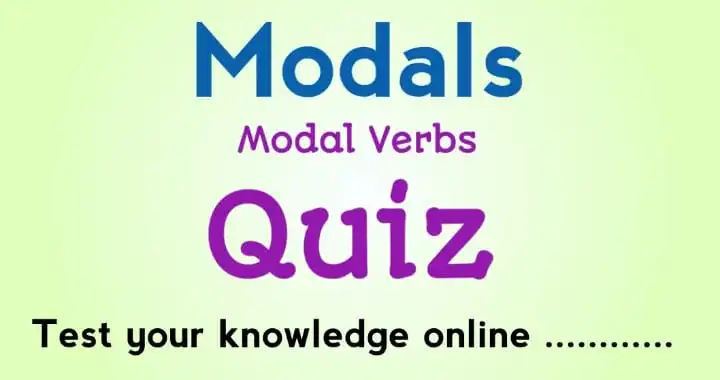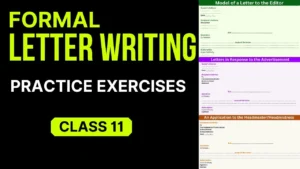Dive into the world of modals with our comprehensive guide to the modals quiz online test. Master the usage of modals in various contexts and enhance your language skills.
Introduction
Are you ready to conquer the nuances of modals in English grammar? The modals quiz online test offers an exciting opportunity to refine your language skills while having fun. This guide will also provide you with the essential insights and strategies to excel in the modals quiz online test.
Modals Quiz Online Test: Understanding the Basics
In this section, we’ll delve into the fundamentals of modals, discussing what they are, how they function, and their significance in language usage.
Modals Unveiled
Modals are auxiliary verbs that add nuances to the main verb in a sentence. They convey various shades of meaning, such as possibility, necessity, permission, and more. Common modals include “can,” “could,” “may,” “might,” “shall,” “should,” “will,” “would,” “must,” and “ought to.”
Importance of Modals
Modals play a crucial role in shaping the tone and intention of a sentence. They help express certainty, ability, obligation, and other aspects of communication that contribute to effective expression.
Power Up Your Language
Mastering modals can empower you to communicate more persuasively, express yourself with precision, and comprehend subtle nuances in conversations, written texts, and formal documents.
Exploring Different Modal Scenarios
In this section, we’ll explore various scenarios where modals come into play, offering a comprehensive understanding of their diverse applications.
Expressing Possibility with “Can” and “Could”
“Can” and “could” are used to indicate the possibility or capability of performing an action. They can also be used to ask for or grant permission.
Conveying Necessity with “Must” and “Have To”
When something is mandatory or essential, “must” and “have to” step in. They highlight obligations and responsibilities.
Talking About Future Events with “Will” and “Going To”
“Will” and “going to” are used to discuss future events. “Will” often indicates a spontaneous decision, while “going to” suggests prior planning.
Seeking and Giving Permission with “May” and “Can”
“May” and “can” are employed to request or grant permission, with “may” considered more formal.
Tips and Strategies for Acing the Modals Quiz Online Test
As you prepare for the modals quiz online test, keep these strategies in mind to enhance your performance and boost your confidence.
- Context is Key: Understand the context of the sentence to select the appropriate modal verb.
- Practice Regularly: Engage in quizzes, exercises, and mock tests to reinforce your understanding of modals.
- Review Examples: Study real-life examples to grasp the subtle differences between various modal verbs.
- Read Extensively: Exposure to diverse texts will help you identify how modals are used in different scenarios.
- Seek Feedback: Review your answers and seek feedback to identify areas for improvement.
Modals Quiz Test
Remember, mastering modals takes practice, patience, and a keen understanding of context. So, dive into quizzes, engage with exercises, and explore the rich variety of contexts where modals play a pivotal role.
People also ask
FAQs About Modals Quiz Online Test
Q: What is the purpose of the modals quiz online test?
A: The modals quiz online test assesses your understanding of modal verbs and their appropriate usage in various contexts.
Q: Are there any tricks to remember the differences between modal verbs?
A: While there aren’t specific tricks, consistent practice and exposure to examples will help you remember the distinctions.
Q: Can I use modal verbs interchangeably?
A: No, modal verbs have specific meanings and usages. Using them interchangeably might alter the intended message.
Q: How can I improve my modal verb usage in writing?
A: Read extensively, analyze how professionals use modals, and practice writing sentences incorporating different modal verbs.
Q: Is it possible to overuse modal verbs?
A: Yes, excessive use of modals can make your writing sound awkward. Balance is crucial for effective communication.
Q: Are there regional differences in modal verb usage?
A: Yes, some modal verb preferences might vary based on regional or cultural language usage.







